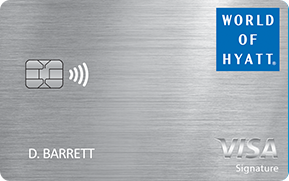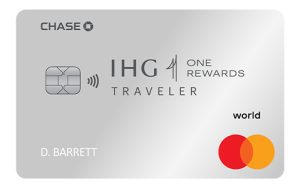So, you've caught the travel bug, and you're itching to explore the world, or maybe you just need a night away from home. But there's one thing that always seems to empty our pockets faster than we'd like: the cost of accommodations. It feels like no matter where you go, hotels are always one of the biggest expenses, right? But what if I told you it doesn't have to be this way?
That's right, saving money on hotels is totally possible, and we've got the inside scoop. From booking tricks to timing tips, this article will guide you through the art of getting the best bang for your buck when booking your next hotel stay.
-
Compare Prices
Use hotel comparison websites or apps to compare prices across different platforms and find the best deals. Websites like Expedia, Booking.com, or Kayak can help you find the most affordable options. Here are some tips on how to effectively use hotel comparison websites to compare prices and find the best deals:
- Choose reputable comparison websites: Use well-known hotel comparison websites such as Expedia, Booking.com, Kayak, or Hotels.com. These platforms typically have a wide range of hotel options and offer competitive rates.
- Compare prices across different platforms: Once you've selected a few hotels that meet your criteria, open multiple tabs on your web browser and search for the same hotels on different comparison websites. Compare the prices offered by each platform to ensure you're getting the best deal.
- Check for additional fees and taxes: Keep in mind that the prices displayed on comparison websites may not include additional fees and taxes. Before finalizing your booking, click on the hotel's listing to view the complete breakdown of costs and make sure there are no hidden fees.
- Read reviews and ratings: While comparing prices, don't forget to read reviews and ratings from previous guests. This will give you insights into the hotel's quality, service, cleanliness, and overall guest satisfaction. Pay attention to recent reviews to get an up-to-date understanding of the hotel's performance.
- Book directly with the hotel: Once you've found the best deal on a hotel comparison website, visit the hotel's official website and check if they offer any exclusive discounts or promotions for booking directly. Sometimes, hotels offer lower rates or additional perks when you book directly with them.

-
Book In Advance
When it comes to saving money on hotels, booking in advance can be a highly effective strategy. Planning and reserving your hotel accommodation well ahead of your travel dates can often lead to significant savings and better deals.
Hotels offer lower prices for early bookings as they want to secure their occupancy and plan their operations accordingly. By booking in advance, you have a higher chance of getting discounted rates and taking advantage of early-bird promotions. Many hotels offer special discounts or packages for guests who book early, allowing you to secure a room at a more affordable price compared to last-minute bookings.
Booking in advance also provides you with a wider range of options. As the travel date approaches, the availability of rooms decreases, and prices tend to increase. By making your reservation early, you have a greater selection of rooms to choose from, including rooms with better views, amenities, or desired features. This puts you in a better position to find the perfect accommodation within your budget.
Additionally, booking early gives you peace of mind and eliminates the stress of finding a suitable hotel at the last minute. You can focus on other aspects of your trip, knowing that your accommodation is secured.
It's worth noting that booking in advance works best for trips with fixed travel dates and plans. If your travel plans are flexible, you might also consider monitoring hotel prices over time and booking when you find a particularly good deal.
Sign Up for
Our Newsletter
and special member-only perks.
Sign Up for
Our Newsletter
and special member-only perks.
-
Be Flexible With Your Travel Dates
Being flexible with your travel dates can be an effective strategy to save money on hotel accommodations. Hotel prices can fluctuate significantly depending on various factors, including the time of year, day of the week, and specific events happening in the area.
Firstly, consider adjusting your travel dates within the same season or month. Prices tend to be higher during peak travel periods when demand is high, such as during school vacations or popular holidays. By choosing to travel during off-peak seasons or weekdays, you can often find better deals and lower rates.
Secondly, it's worth exploring if there are any major events taking place in the destination you plan to visit. Events like festivals, conferences, or sports tournaments can cause a surge in hotel prices due to increased demand. If possible, avoid booking your stay during such events to secure more affordable rates.
Moreover, staying flexible with your travel dates allows you to take advantage of last-minute deals and discounts. Hotels sometimes offer reduced prices to fill empty rooms closer to the date of arrival. This can be beneficial if you have the flexibility to make spontaneous travel plans or if you're comfortable with the possibility of limited options.
-
Use Hotel Loyalty Programs
Hotel loyalty programs are designed to reward repeat customers and encourage brand loyalty. Accumulating points with a specific hotel chain can lead to significant savings over time.
To participate in a hotel loyalty program, you typically need to sign up for free either through the hotel's website or at the front desk during your stay. Some hotel chains even offer mobile apps for easy enrollment. Once you're a member, you earn points for each qualifying stay at the hotel or its partner properties.
Most loyalty programs have different status tiers based on your level of activity or the number of points earned. As you accumulate more points or stay more frequently, you can move up to higher tiers, unlocking additional benefits and privileges. Hotel loyalty programs offer various benefits and rewards, which can include:
Discounts on room rates: Loyalty program members often receive exclusive discounted rates when booking directly through the hotel's website or app.
Free upgrades: Higher-tier members may enjoy complimentary room upgrades to a higher category or better views.
Late check-out: Loyalty program members may be eligible for late check-out, allowing them to extend their stay without additional charges.
Free amenities: Some programs offer perks like complimentary Wi-Fi, access to fitness facilities, breakfast, or even welcome gifts.
Priority check-in: Loyalty members may have a separate check-in line or priority service, ensuring a smoother and quicker check-in process.
Accumulated points can be redeemed for rewards such as free nights, discounted rates, or other hotel-related services. The redemption options vary depending on the program and can range from hotel stays to airline miles, gift cards, or even merchandise.
Examples Of Hotel Loyalty Programs
Examples of hotel loyalty programs include:
Marriott Bonvoy: This program covers Marriott International's extensive portfolio of hotel brands, including Marriott Hotels, Sheraton, Westin, and more. Members can earn and redeem points across the participating hotels and enjoy benefits like room upgrades, free breakfast, and late check-out.
Hilton Honors: Hilton's loyalty program offers benefits such as complimentary Wi-Fi, digital check-in, and the ability to pool points with family or friends. Members can earn points at Hilton's wide range of hotel brands, such as Hilton Hotels & Resorts, DoubleTree, and Conrad.
IHG Rewards Club: InterContinental Hotels Group (IHG) loyalty program provides points for stays at their hotels, including Holiday Inn, Crowne Plaza, and InterContinental. Members can earn and redeem points across the extensive IHG hotel network and enjoy benefits like priority check-in and extended check-out.
These are just a few examples, and many other hotel chains and independent hotels have their loyalty programs. It's worth exploring the specific benefits and rewards offered by each program to find the one that aligns with your travel preferences.

-
Using A Co- Branded Hotel Credit Card
Using a hotel credit card strategically can help you save on hotels and enjoy various benefits. Here's a breakdown of how it works and how you can maximize your savings:
Earning Points: Hotel credit cards allow you to earn points on your everyday purchases, including hotel stays, dining, and other expenses. The points you accumulate can be redeemed for free hotel stays, upgrades, and other rewards.
Sign-up Bonuses: Hotel credit cards often offer generous sign-up bonuses. To take advantage of these bonuses, you typically need to meet a minimum spending requirement within a specific time frame after opening the card. These bonuses can provide a significant number of points, allowing you to enjoy free nights or valuable rewards right from the start.
Accelerated Points Earning: Using a hotel credit card for hotel bookings within the associated loyalty program or its partner properties usually earns you points at an accelerated rate. This means you'll accumulate points faster, enabling you to reach redemption thresholds more quickly.
Elite Status: Some of the top hotel credit cards offer automatic elite status or enhanced loyalty program benefits. By holding the credit card, you may receive perks like room upgrades, late check-out, complimentary breakfast, and access to exclusive amenities. These benefits can enhance your hotel experience and save you money on additional expenses.
Complimentary Nights: Hotel credit cards often provide an annual free night certificate or the ability to earn free nights based on your spending. These certificates can be used at participating hotels within the associated loyalty program, allowing you to enjoy a complimentary stay and save on accommodation costs.
Redeeming Points: Hotel credit card points can be redeemed for various rewards within the loyalty program. This can include free nights at hotels, room upgrades, dining vouchers, spa credits, or even experiences and activities. Understanding the redemption options and finding the best value for your points can help you maximize your saving.
Card | Rewards | Bonus | Annual Fee | |
|---|---|---|---|---|
| 1X – 4X
4 Bonus Points per $1 spent on purchases at all Hyatt hotels. Plus, 5 Base Points from Hyatt per eligible $1 spent for being a World of Hyatt member. 2x Bonus Points per $1 spent at restaurants, on airline tickets purchased directly from the airline, local transit and commuting as well as fitness club and gym memberships. Plus, earn 1 Bonus Point per $1 spent on all other purchases.
| Up to 60,000 Bonus Points
30,000 Bonus Points after you spend $3,000 on purchases in your first 3 months from account opening.*Opens offer details overlay Plus, up to 30,000 More Bonus Points by earning 2 Bonus Points total per $1 spent in the first 6 months from account opening on purchases that normally earn 1 Bonus Point, on up to $15,000 spent.
| $95 | |
| 3x – 10x
10X points from IHG® on stays for being an IHG One Rewards member. Plus up to 6X points from IHG® on stays with Platinum Elite Status, a benefit of this card. 5X total points on travel, dining, and at gas stations. 3X points per $1 spent on all other purchases.
| 140,000 points
140,000 Bonus Points after you spend $3,000 on purchases in the first 3 months from account opening.
| $0 | |
| 3X – 7X
7X Hilton Honors Bonus Points for each dollar of eligible purchases charged directly with hotels and resorts within the Hilton portfolio, 5x points at U.S. restaurants (including takeout and delivery) U.S.supermarkets, U.S. gas stations and 3x points for each dollar on other eligible purchases
| 70,000 points
70,000 Hilton Honors Bonus Points after you spend $2,000 in purchases on the Card in the first 6 months of Card Membership
| $0 (Rates & Fees) | |
| 1x – 6X
6X points for every $1 spent at over 7,000 hotels participating in Marriott Bonvoy® with the Marriott Bonvoy Boundless® credit card. Plus, earn up to 10X points from Marriott for being a Marriott Bonvoy® member. Plus, earn up to 1X point from Marriott with Silver Elite Status. Earn 3X points for every $1 on the first $6,000 spent in combined purchases each year on grocery stores, gas stations, and dining. Earn 2X points for every $1 you spend on all other purchases.
| 3 Free Nights
3 Free Nights (each night valued up to 50,000 points) after you spend $3,000 on purchases in your first 3 months from your account opening
| $95 | |
| 2X – 6X
6 Marriott Bonvoy points for each dollar of eligible purchases at hotels participating in the Marriott Bonvoy™ program, 3 points at Worldwide restaurants and on flights booked directly with airlines and 2 points on all other eligible purchases
| 95,000 points
95,000 Marriott Bonvoy bonus points after you use your new Card to make $6,000 in purchases within the first 6 months of Card Membership
| $650 |
-
Consider Alternative Accommodations
When I mention “consider alternative accommodations,” I'm referring to options other than traditional hotels. These alternatives can offer different experiences and often come at a lower cost. Here are some common alternative accommodations:
Vacation rentals: Platforms like Airbnb, Vrbo, and HomeAway allow individuals to rent out their homes, apartments, or vacation properties to travelers. Savings can vary greatly depending on the destination and the specific property, but in general, vacation rentals can be more cost-effective for longer stays or for larger groups.
Hostels: Hostels are budget-friendly accommodations that provide shared dormitory-style rooms or private rooms at a lower cost compared to hotels. Hostels are popular among backpackers, solo travelers, and budget-conscious travelers. Savings with hostels can be significant, especially for solo travelers or those on a tight budget.
Bed and breakfasts (B&Bs): B&Bs are typically smaller establishments that offer a more personalized and homely experience. They are often located in residential areas and provide breakfast as part of the stay. B&Bs can offer competitive rates compared to hotels, especially in areas where hotels are expensive.
Guesthouses: Guesthouses are similar to B&Bs, but they may not always include breakfast. They are usually smaller, family-run establishments that offer a more intimate and local experience.
The amount of savings you can achieve with alternative accommodations depends on several factors, including the destination, the duration of your stay, and the specific property or host. In some cases, you may find significant savings compared to hotel rates, particularly if you're willing to sacrifice some amenities or opt for shared spaces.
-
Consider Off-Peak Seasons
Consider traveling during off-peak seasons as a strategy to save money on hotel accommodations. Off-peak seasons refer to periods of time when tourist destinations are less crowded and demand for hotels is lower. By choosing to travel during these times, you can often secure more affordable rates and enjoy a more relaxed experience.
During off-peak seasons, hotels typically lower their prices to attract guests and fill their rooms. This is because demand is lower due to factors such as weather conditions, school or work schedules, or local events. For example, destinations that are popular for summer vacations may have lower rates during the winter months when fewer tourists visit. Similarly, you might find better deals in coastal areas during the shoulder seasons, which fall just before or after the peak summer months.
Traveling during off-peak seasons has several advantages beyond cost savings. With fewer tourists around, you can expect shorter lines and less crowded attractions, making your overall travel experience more enjoyable. Additionally, you may have better access to hotel amenities, as they are likely to be less busy during these times.
Top Offers



Top Offers From Our Partners
Top Offers



-
Stay Outside City Centers
Choosing to stay outside city centers can be a great way to save money on hotel accommodations. Typically, hotels located in city centers tend to be more expensive due to their prime location and easy access to tourist attractions, business districts, and amenities. By venturing a bit further from the city center, you can often find more affordable options without compromising too much on convenience.
Staying outside city centers often means exploring accommodation options in nearby suburbs or residential areas. These areas may offer hotels that are more budget-friendly while still providing easy access to public transportation or major highways. This allows you to reach the city center and popular attractions within a reasonable commute.
In addition to cost savings, staying outside city centers can also offer a different experience. You'll have the opportunity to explore the local neighborhoods, interact with locals, and discover hidden gems that may not be as frequented by tourists. This can provide a more authentic and immersive travel experience.
The actual amount you can save by staying outside city centers will depend on factors such as the destination, the specific hotel, and the time of year. In some cases, the savings can be significant, with price differences of 20-30% or more compared to city center accommodations.
Bottom Line
By employing these strategies, travelers can maximize their savings on hotel expenses without compromising on comfort or safety.
It's crucial to balance cost savings with personal preferences and to research thoroughly, read reviews, and consider location before finalizing accommodation choices. With these tips, budget-conscious travelers can make the most of their hotel stays while keeping their expenses in check.


